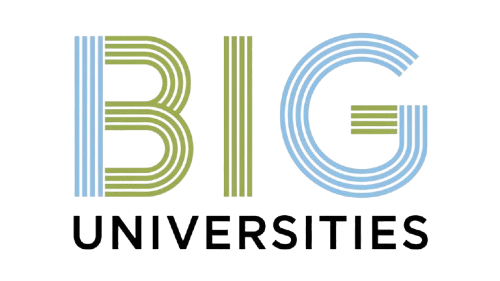Imagine earning a world-class degree from an international university without the crippling burden of hefty tuition fees. For many Indian students, this seems like an impossible dream, but it is an achievable reality in several progressive nations. This guide is your definitive roadmap to the best free education countries for Indian students, offering a practical breakdown of how to turn this aspiration into a concrete plan.
We will move beyond the headlines and dive deep into the specifics. You will get a detailed look at tuition policies in top destinations like Germany, Norway, and France, along with actionable insights on eligibility criteria, the application process, and estimated living costs. We will also cover crucial information on scholarships, visa requirements, and post-study work opportunities. This article provides the clear, comprehensive information you need to make an informed decision and begin your journey towards an affordable, high-quality international education.
1. Germany – Leading Free Higher Education
Germany stands out as a top choice for students from India seeking high-quality, tuition-free education. Since 2014, public universities across Germany have abolished tuition fees for all students, including internationals, for undergraduate and most master's programmes. This policy makes it one of the most financially attractive free education countries for Indian students, requiring them only to cover a small semester contribution.
This semester fee, typically ranging from €150 to €350, covers administrative costs, student union services, and often a public transport ticket for the city. This accessibility, combined with a world-class education system, makes Germany an exceptional destination. Renowned institutions like the Technical University of Munich (TUM), University of Heidelberg, and RWTH Aachen University consistently rank among the world's best, particularly in engineering, science, and research fields.
Key Financials at a Glance
For a quick overview, here's a summary of the essential costs for studying in Germany.
The infographic highlights that while tuition is free, students must budget for modest administrative fees and significant living expenses, which are crucial for the visa application's proof of funds requirement.
Actionable Tips for Indian Applicants
To successfully navigate the German university system, Indian students should take a strategic approach:
- Start Early: Begin your application process 12-18 months in advance. This allows ample time for research, document preparation, and meeting strict deadlines.
- APS Certification: All Indian students must get their academic documents verified by the Academic Evaluation Centre (APS). This is a mandatory step, so complete it early.
- Learn Basic German: While many master's programmes are in English, knowing German (at least A2/B1 level) is vital for daily life, part-time jobs, and post-study work opportunities.
- Secure Scholarships: Apply for scholarships like those from the German Academic Exchange Service (DAAD) to help cover living costs.
To explore specific university options and their unique requirements, you can learn more about the top universities in Germany.
2. Norway – Comprehensive Free Education System
Norway offers an exceptional opportunity for tuition-free education at its public universities for all international students, including those from India. While this long-standing policy is set to change for new non-EU/EEA students starting from the autumn 2023 semester, students already enrolled or starting before this change can complete their programmes without fees. The country's high standard of living and emphasis on research make it a compelling option among free education countries for Indian students.

The system is funded by the Norwegian government, ensuring top-tier academic quality. Esteemed institutions like the University of Oslo, the Norwegian University of Science and Technology (NTNU), and the University of Bergen are known for their strong programmes in social sciences, technology, and marine sciences, respectively. Students are only required to pay a small semester fee of approximately NOK 300-600 (€30-€60), which grants them access to student welfare services.
Key Financials at a Glance
While tuition is free, Norway's high cost of living requires careful financial planning. Here's a quick overview of the essential costs for studying in the country.
The video above provides insights into managing living expenses in Norway. For the visa application, Indian students must prove they have sufficient funds to cover their living costs, which are among the highest in Europe.
Actionable Tips for Indian Applicants
To make your Norwegian academic journey a success, consider these practical steps:
- Budget Meticulously: Plan for monthly living expenses of €1500-€2000. Create a detailed budget covering accommodation, food, transport, and leisure.
- Apply for Housing Early: Student housing is limited and highly sought after. Apply through the student welfare organisations (like SiO) as soon as you receive your university admission letter.
- Learn Basic Norwegian: Although Norwegians speak excellent English, learning the local language will significantly enhance your social integration and improve post-study job prospects.
- Embrace the Outdoors: Take advantage of Norway's stunning natural landscapes. Hiking, skiing, and exploring fjords are popular and affordable recreational activities that offer a break from studies.
3. Finland – Innovation-Focused Free Education
Finland is celebrated for its cutting-edge, student-centric education system and has become an increasingly popular destination. While tuition is free for EU/EEA citizens, Finnish universities offer extensive scholarship programmes for non-EU students, including those from India, often covering 100% of the tuition fees. This makes it a viable and attractive option among free education countries for Indian students, particularly for those focused on technology and research.
The country's high-tech industry and emphasis on innovation create a dynamic learning environment. World-class institutions like the University of Helsinki, Aalto University, and Tampere University are renowned for their strong English-taught programmes in fields like engineering, information technology, design, and environmental sciences. These scholarships, combined with a high quality of life, make Finland an excellent choice for a forward-thinking education.
Key Financials at a Glance
A summary of the essential costs for studying in Finland, highlighting the importance of scholarships.
| Cost Category | Estimated Amount (EUR) | Key Details |
|---|---|---|
| Tuition Fees (Non-EU) | €5,000 – €18,000 per year | Varies by university and programme. |
| Scholarships | Up to 100% tuition waiver | Finland Scholarship covers first-year tuition + €5,000 relocation grant. |
| Living Expenses | €700 – €1,000 per month | Required for student residence permit; covers accommodation, food, transport. |
| Application Fee | ~€100 per programme | Non-refundable fee for processing applications. |
The table emphasises that while tuition fees exist for Indian students, substantial scholarship opportunities can effectively reduce this cost to zero, making financial planning for living expenses the primary focus.
Actionable Tips for Indian Applicants
To maximise your chances of securing a funded spot in a Finnish university, consider these strategies:
- Apply for the Finland Scholarship: This government-funded scholarship is offered by most universities and provides a full first-year tuition waiver plus a €5,000 relocation grant. Apply for it alongside your university application.
- Focus on STEM and Research: Programmes in science, technology, engineering, and mathematics often have more funding and scholarship opportunities available due to industry demand.
- Highlight Your Profile: Craft a strong Statement of Purpose (SOP) and Letters of Recommendation (LORs) that align with Finland’s focus on innovation, problem-solving, and independent thinking.
- Learn Basic Finnish: While not mandatory for studies, knowing some Finnish (Suomi) significantly improves your part-time job prospects and integration into local culture, which is valuable for long-term career goals.
4. France – Affordable Quality Education
France offers an exceptional model of highly subsidised higher education, making it one of the most affordable free education countries for Indian students in spirit. While not entirely free, the French government heavily subsidises tuition fees at public universities, meaning international students pay only a fraction of the actual cost. This policy provides access to a world-renowned academic system steeped in a rich cultural and intellectual heritage.
This government support keeps annual tuition fees remarkably low, often around €2,770 for a bachelor's degree and €3,770 for a master's. Institutions like the prestigious Sorbonne University, École Normale Supérieure, and Sciences Po deliver elite education at these minimal costs. This unique combination of affordability and academic excellence makes France a prime destination for students seeking high-value European education without an exorbitant price tag.
Key Financials at a Glance
For a clear overview, here's a summary of the essential costs for studying in France.

The infographic illustrates that while there are nominal tuition fees, the primary financial consideration is the cost of living, which varies significantly between Paris and other French cities.
Actionable Tips for Indian Applicants
To successfully navigate the French application system, Indian students should adopt a strategic approach:
- Start Learning French: Although many programmes are taught in English, basic French proficiency (A2/B1 level) is crucial for daily life, accessing part-time jobs, and integrating into the local culture.
- Use the Campus France Portal: The application process for most universities is streamlined through the official Campus France platform. This is a mandatory step for Indian students.
- Look Beyond Paris: Consider universities in smaller, vibrant cities like Lyon, Toulouse, or Montpellier, where the cost of living and accommodation is significantly lower than in the capital.
- Apply for CAF Housing Aid: All students, including internationals, are eligible for the Caisse d'Allocations Familiales (CAF) housing allowance, which can substantially reduce your monthly rent expenses.
For a step-by-step guide, you can learn more about the application process for French colleges.
5. Austria – Hidden Gem for Free Education
Often overlooked, Austria is a fantastic and affordable destination for higher education. While not entirely free for non-EU/EEA students, public universities in Austria charge very low tuition fees, typically around €726.72 per semester. This makes it a highly economical choice and a strong contender among free education countries for Indian students looking for value.
This affordability, combined with Austria's high quality of life, stunning Alpine scenery, and rich cultural heritage, creates an exceptional study environment. Institutions like the University of Vienna and the Vienna University of Technology (TU Wien) are globally recognised for their strong academic programmes, particularly in the arts, humanities, and engineering. The low tuition fees grant access to a world-class European education system without a prohibitive financial burden.
Key Financials at a Glance
For a quick overview, here's a summary of the essential costs for studying in Austria.
| Cost Category | Estimated Amount (per year) | Notes |
|---|---|---|
| Public University Tuition | Approx. €1,500 | Significantly lower than other Western European nations. |
| Living Expenses | €11,000 – €14,000 | Covers accommodation, food, transport, and personal expenses. |
| Student Union Fee | Approx. €45 | Mandatory fee per year, includes accident insurance. |
| Proof of Funds (Visa) | Approx. €12,000 | Required for the student residence permit application. |
The table shows that while tuition is minimal, the primary financial consideration is the cost of living, which is essential for the visa process.
Actionable Tips for Indian Applicants
To successfully navigate the Austrian university system, Indian students should adopt a well-planned approach:
- Learn German: Although some master's programmes are taught in English, proficiency in German is crucial for daily life, part-time jobs, and post-study career opportunities. Aim for at least a B1 level.
- Apply Early: Application deadlines can be as early as six months before the semester starts. Some programmes have entrance exams or limited seats, so applying early is vital.
- Secure Student Housing: Book your accommodation well in advance. Look for subsidised student dormitories (Studentenwohnheim) as they are the most affordable option.
- Explore Scholarships: Check for scholarships offered by the Austrian Agency for International Cooperation in Education and Research (OeAD) to help offset living costs.
For more details on specific courses and university requirements, you can learn more about studying in Austria.
6. Czech Republic – Affordable Central European Education
The Czech Republic presents a unique opportunity for Indian students, offering a pathway to free higher education for those willing to study in the Czech language. Public universities do not charge tuition fees for programmes taught in Czech, regardless of a student's nationality. For those who prefer English, tuition fees are remarkably low, often ranging from €2,000 to €5,000 per year, making it one of the most cost-effective free education countries for Indian students when considering overall value.
This affordability does not compromise on quality. The country is home to some of Central Europe's oldest and most prestigious institutions, such as Charles University and the Czech Technical University in Prague. Combined with a low cost of living, rich cultural heritage, and a strategic location in the heart of Europe, the Czech Republic offers an exceptional and budget-friendly study abroad experience.
Key Financials at a Glance
Here’s a summary of the typical costs associated with studying in the Czech Republic, highlighting its financial accessibility compared to other European destinations.
- Public University (Czech-Taught): €0 tuition fees
- Public University (English-Taught): €2,000 – €5,000 per year (approx.)
- Average Living Costs: €400 – €750 per month
- Student Visa Proof of Funds: ~€4,500 per year
While English programmes have fees, they are significantly lower than in many Western countries. The low living expenses further enhance its appeal for students managing a tight budget.
Actionable Tips for Indian Applicants
To make the most of the Czech educational system, Indian students should consider these practical steps:
- Consider Learning Czech: Enrolling in a one-year preparatory Czech language course can unlock tuition-free education at public universities, offering substantial long-term savings.
- Apply Directly and Early: The application process is typically handled directly through university websites. Deadlines are often in early spring, so start your application well in advance.
- Explore Beyond Prague: While Prague has the most English-taught programmes, cities like Brno and Olomouc offer excellent universities with an even lower cost of living.
- Leverage Location: Take advantage of the Czech Republic's central location to travel and explore other European countries cheaply, enriching your overall experience.
For those interested in exploring similar low-cost study destinations, you can discover more about affordable education in Europe.
7. Belgium – Multilingual Quality Education
Belgium presents a unique and affordable study destination, known for its high-quality, multilingual education system. While not entirely free, tuition fees at public universities are exceptionally low for international students, often ranging from €900 to €4,500 per year, which makes it a highly affordable choice among free education countries for Indian students. Situated at the heart of Europe, Belgium offers a rich cultural experience and excellent prospects for international careers, particularly in diplomacy and business.
The country's well-funded universities provide outstanding value, with institutions like KU Leuven and Ghent University ranking among the world’s best. Belgium's education system is divided into three communities: Flemish (Dutch-speaking), French, and German-speaking, each with its own set of institutions and fee structures. Brussels, being a bilingual and international hub, offers a significant number of programmes in English, making it particularly attractive for students from India.
Key Financials at a Glance
For a quick overview, here's a summary of the essential costs for studying in Belgium.
- Average Tuition Fees: €900 – €4,500 per year for non-EU students.
- Estimated Living Costs: €850 – €1,100 per month.
- Proof of Funds for Visa: Approximately €10,000 – €13,000 per year.
- Language of Instruction: Dutch, French, German, and a growing number of programmes in English.
While tuition exists, the fees are significantly lower than in many other Western countries, and the high standard of living and education provides excellent value for money.
Actionable Tips for Indian Applicants
To make the most of studying in Belgium, Indian students should consider these strategic steps:
- Choose Your Region Wisely: Your choice of university will depend on your language preference. The Flemish region (Flanders) has Dutch-speaking universities, while Wallonia has French-speaking ones. Brussels offers both, plus the most English-taught programmes.
- Leverage the EU Hub: If you are studying in Brussels, actively seek internship opportunities with EU institutions, NATO, and the numerous international organisations headquartered there. This can be a major career advantage.
- Apply for Regional Scholarships: Look for scholarships offered by the regional governments, such as the Master Mind Scholarships in Flanders or ARES scholarships in Wallonia, to further reduce costs.
- Network Proactively: Take advantage of Belgium's central location to attend conferences and events across Europe. Building a professional network is key to securing post-study work opportunities.
Top 7 Free Education Countries for Indian Students Comparison
| Country | Implementation Complexity 🔄 | Resource Requirements ⚡ | Expected Outcomes 📊 | Ideal Use Cases 💡 | Key Advantages ⭐ |
|---|---|---|---|---|---|
| Germany | Moderate – competitive admissions and bureaucratic procedures | Moderate – no tuition, admin fees €150-350/sem, living €800-1200/month | High – quality education, strong jobs in engineering & tech | Engineering, Computer Science, Business, Medicine | Tuition-free, strong industry links, DAAD scholarships |
| Norway | Moderate – application process, language learning encouraged | High – no tuition, living €1500-2000/month, limited part-time work | High – research, innovation, good job market | Sustainability, Petroleum, Marine Technology | Tuition-free, excellent welfare, high English proficiency |
| Finland | Moderate – scholarships for non-EU, language barriers possible | Moderate- scholarships available, living €700-1200/month | High – tech and design innovation, STEM focus | Technology, Design, Research | Innovative system, strong startup ecosystem |
| France | Moderate – bureaucratic, French language often needed | Low – low tuition (~€2,770/year), living €600-1200/month | High – globally recognized degrees, rich culture | Wide range including humanities, business | Affordable tuition, rich culture, strong research |
| Austria | Moderate – German proficiency recommended, limited English programs | Low – tuition ~€726.72/sem, living €800-1200/month | Moderate – quality education, good local jobs | Arts, Music, Engineering | Affordable tuition, central location, safe environment |
| Czech Republic | Moderate – language barrier for free Czech programs | Low – free in Czech, €4,000-12,000 for English, living €400-800/month | Moderate – growing IT sector, affordable lifestyle | IT, Business, Engineering | Low costs, rich heritage, growing tech sector |
| Belgium | Moderate – multilingual requirements, political complexity | Moderate – tuition €835-4,175/year, living €800-1200/month | High – strong EU career prospects, quality degrees | International relations, Business, Sciences | Multilingual, central EU location, strong internships |
Ready to Take the Next Step?
Embarking on an international education journey is a monumental decision, but as we've explored, it doesn't have to come with a monumental price tag. The dream of studying abroad is more accessible than ever, thanks to the forward-thinking public education policies in countries like Germany, Norway, Finland, and France. Each nation presents a unique blend of academic excellence, cultural richness, and post-study opportunities, making them some of the best free education countries for Indian students.
Your path forward begins with diligent research and strategic planning. While tuition may be free, remember that living costs, language requirements, and specific university application processes are crucial factors to consider.
Key Takeaways for Your Journey:
- Look Beyond Tuition: Your financial planning must comprehensively cover semester contributions, living expenses, health insurance, and visa costs. A robust financial plan is non-negotiable.
- Language is a Gateway: While English-taught programmes are available, learning the local language (like German, French, or Norwegian) will significantly enhance your experience, integration, and future employment prospects.
- Start Early: The application process for European universities is meticulous and often involves several stages, from document legalisation to visa interviews. Begin your preparation at least 12-18 months in advance to avoid last-minute stress.
Ultimately, choosing one of these destinations is an investment in a world-class education and a globally competitive future. It’s a chance to gain new perspectives, build an international network, and launch a successful career without the burden of overwhelming student debt. This journey requires careful navigation, but the rewards are immeasurable. With the right information and a clear strategy, you can transform this aspiration into a successful reality.
Navigating the complexities of university selection, application timelines, and visa requirements can be challenging. Let BigUniversities be your expert guide. We specialise in helping students secure admissions to top universities in these free education countries for Indian students, providing end-to-end support to make your transition seamless. Visit BigUniversities to start your personalised counselling session today.
Article created using Outrank


